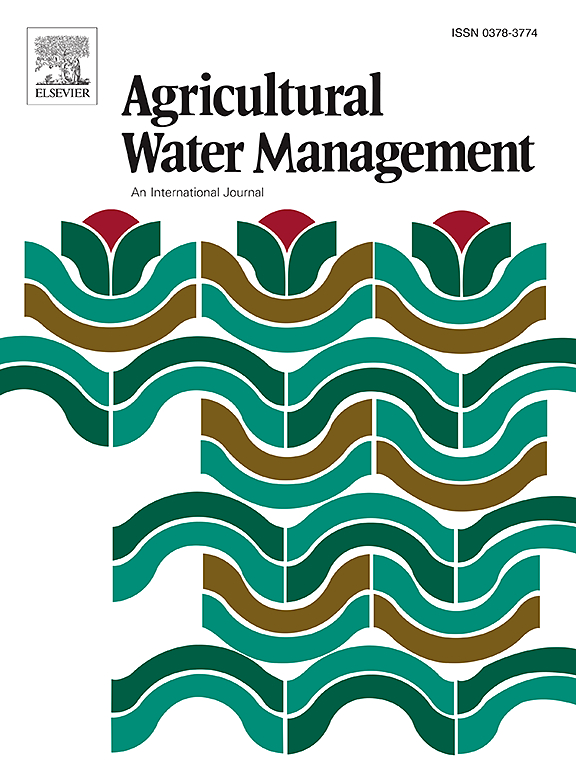Farmers agronomic management responses to extreme drought and rice yields in Bihar, India
IF 6.5
1区 农林科学
Q1 AGRONOMY
引用次数: 0
Abstract
In 2022, the Indian state of Bihar experienced its sixth driest year in over a century. To document the consequences and farmer responses to the meteorological drought, real-time survey data was collected across 11 districts of Bihar. We then developed a causal machine learning model to quantify drought impacts on rice production and to characterize how access to affordable irrigation from electric pumps mitigated productivity losses. This model addresses the empirical challenge of conducting a counterfactual causal analysis when a factor like drought affects nearly all sampled farmers. In the 2022 event, drought led to rice acreage reduction, transplanting delays, damage to seedling nurseries, and higher use rates of supplemental irrigation. For fields that were planted, average yield losses from water stress were estimated as 0.94 t/ha (∼23 % yield loss) with these losses reduced by 0.3 t/ha in fields with access to electric tubewells. Agronomic management practices such as earlier transplanting were also identified as complementary strategies that increased the adaptation value of investments in irrigation. To reduce the impact of drought in Bihar, additional investments in electric irrigation infrastructure are needed along with focused extension efforts and decision support systems that empower farmers to make economically and sustainably rational use of available water resources to maintain yield and profitability.
印度比哈尔邦农民的农艺管理对极端干旱和水稻产量的反应
2022年,印度比哈尔邦经历了一个多世纪以来第六个最干旱的年份。为了记录气象干旱的后果和农民对干旱的反应,比哈尔邦的11个地区收集了实时调查数据。然后,我们开发了一个因果机器学习模型来量化干旱对水稻生产的影响,并描述如何通过电泵获得负担得起的灌溉来减轻生产力损失。当干旱等因素影响几乎所有样本农民时,该模型解决了进行反事实因果分析的经验挑战。在2022年的事件中,干旱导致水稻种植面积减少,移栽延迟,苗圃受损,补充灌溉的使用率更高。对于已种植的农田,水分胁迫造成的平均产量损失估计为0.94 t/公顷(约23% %的产量损失),而在使用电动管井的农田,这些损失减少了0.3 t/公顷。农艺管理实践,如早期移栽,也被确定为增加灌溉投资适应价值的补充战略。为了减少比哈尔邦干旱的影响,需要对电力灌溉基础设施进行额外投资,同时重点推广工作和决策支持系统,使农民能够经济、可持续地合理利用现有水资源,以保持产量和盈利能力。
本文章由计算机程序翻译,如有差异,请以英文原文为准。
求助全文
约1分钟内获得全文
求助全文
来源期刊

Agricultural Water Management
农林科学-农艺学
CiteScore
12.10
自引率
14.90%
发文量
648
审稿时长
4.9 months
期刊介绍:
Agricultural Water Management publishes papers of international significance relating to the science, economics, and policy of agricultural water management. In all cases, manuscripts must address implications and provide insight regarding agricultural water management.
 求助内容:
求助内容: 应助结果提醒方式:
应助结果提醒方式:


